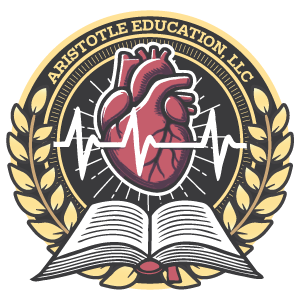A lot of feelings come up with the word and action of fasting.
But before diving into how to fast and how it can help you, let’s look at why fasting is not only beneficial but normal for our bodies.

We are Paleolithic beings who, for thousands of years, survived on the meat we killed, some vegetables, and lots of water. In the lifestyle of a hunter/gatherer, you caught or found your food, ate it, and then didn’t eat until hours or even days later. Paleo Paul and Polly couldn’t just find a wild bison in aisle 12. The implementation of agriculture changed how our society produces and gets food, but at our core, we are those Paleolithic beings. Our bodies were made to fast and feast.
Eating is an energy-consuming activity. If you eat 100 calories, it takes 60-70 calories just to digest that food.
A common worry when fasting is that you won’t have enough energy. You already have 50,000 calories inside you, ready to be used for energy without ingesting food. You have plenty of protein in your body, a month’s worth of vitamins, and enough fat to last you a month or more.
There is also the concern about becoming hypoglycemic when fasting. Your blood sugar will never significantly drop, only slightly come down. But the reason for the minor decrease is that you are not producing insulin because you are not eating. Now the situation is different for those on insulin or diabetes medications, who should always consult their doctors before embarking on a fast.
So, what happens when you fast?
Your body has to go through the glycogen (the stored glucose/sugar) first before you start using proteins and fat. After 12 hours, gluconeogenesis happens, where the glucose begins coming from proteins. Proteins are always turning over in your body, but now, you are using the glucose from those proteins for energy. The fat in your body can only be utilized for energy if insulin levels have dropped, which only occurs if you aren’t eating. The fat converts to triglycerides and fatty acids and moves through the bloodstream to the liver, turning into ketones. There becomes a small increase in ketosis after 18 hours into a fast. These ketones can be utilized by every cell of the body, including the brain.
Our bodies are one large ecosystem, and the bacteria that live in the microbiome of your stomach have their own circadian pattern. Fasting allows your gut to do a master reset, and you begin to metabolize food differently. Efficiently, with less storage.
What are the benefits of fasting:
- It increases your metabolic rate and your cortisol levels. After 18 hours epinephrine (adrenaline) levels increase, making you feel more alert and awake.
- Fasting helps get rid of the bad bacteria in your gut while encouraging the good.
- Lowers blood pressure and triglycerides.
- Increases HDL.
- Boots your immunity.
- Reduces inflammation in the body.
- It helps the function of the brain by clearing the brain fog and encouraging brain cell production.
- Encourages the release of growth hormones, which helps with muscle repair and keeps you young. It has been studied, after a 2 day fast, growth hormones increase 2000% in men and 1300% in women.
- Stem cell mobilization occurs, coming from the bone marrow and replenishing the cells in organs.
A study at Boston University saw a 7-day water fast reduced the probability of getting cancer by more than 70%.


How to start fasting:
When starting the process of fasting, take it one step at a time.
Begin removing carbohydrates from your daily meals and avoid processed food and sugar.
Start by skipping one meal one day a week. Then, try skipping one meal for three or four days. Then graduate to skipping two meals a day for one or two weeks.
You can choose to do intermittent fasting, an 18-hour, or a 3 day. It all depends on what works best for what you want to accomplish.
While fasting, you can have water, tea and coffee, without any milk or cream. If you need to little something, you can add some ultra-filtered coconut oil or MCT oil to those beverages. You can also have bone broth, which has glycine, phosphate, magnesium, and other minerals that help when you feel weakness or aching in your muscles. Ideally, making your bone broth is the best option. Dr. Jamnadas recommends the bone broth recipe from Dr. Jason Fung’s book The Obesity Code Cookbook.
Remind yourself you have to let your body get used to this change. Many of us have a Pavlovian response to eating, like “It’s noon, so I should eat lunch,” even though you might not be hungry or feel fine. There will come a point when you feel good, and the cravings will dissipate.
You and your body were meant to survive and thrive. Back to the Paleolithic being, when you needed food, you didn’t crawl into the corner of the cave and shut off, you went out and hunted for your next meal. Your body wants you to survive, so it calls upon that stored energy that lives in your body.
If you are on any medications to manage blood pressure, insulin, or diabetes, please consult with your physician before doing a fast.
When it comes to eating, it’s not about calories in and out. It’s about a deeper cellular relationship with eating and fasting as a tool to energize your body so it can thrive.

Watch Dr. Jamnadas’ full video on the topic here:
